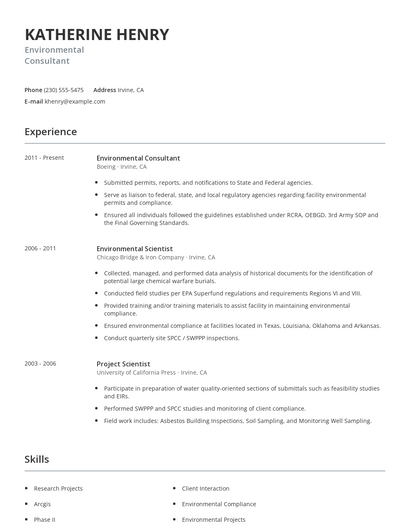
At Google, Software Engineers are solving a wide range of computer science problems. This team will help you build tools, infrastructure and harnesses that will improve engineering productivity and product excellence. These engineers enjoy building tools to improve engineering processes. They hate taking shortcuts in the code and manual tasks. Instead, they use automation for faster work. Read on to learn more about the job responsibilities and benefits of Software Engineers at Google.
Salary ranges
Software engineers make upwards of $135k a year. Google engineers work in many departments and on major projects. Google is particularly interested in full-stack engineers who have a broad range of skills and experiences. The salaries for these employees are between $81k and $315k each year. Many former employees of Google say there are few opportunities for growth beyond the staff software engineer level. While the company is known for its high salaries, it is still unclear whether engineers in the top-tier positions are paid significantly more.

The hiring process
There are several steps to hiring Google software engineers. First, the applicant goes through a thorough screening process. A group recruiters looks over the applicant's CV and checks it for technical abilities, experience, and education. After that, the recruiters contact applicants for phone screening rounds. The committee meets for discussion and possibly debates the decision. The interview is the final step. It can take between 30 and 60 minutes depending on which role you are playing.
Bonuses
Google software engineers get a wide variety of salaries and bonuses. Fresh out of college engineers can expect to make at least $150,000 a year, plus a $30,000 annual bonus. Extraordinary talent can also get salary raises. The highest-paid software engineers earn more than $630,000 annually, which includes a $80,000 cash bonus and $300,000.000 in stock grants. Google software engineers get bonuses on a performance-based basis.
Promotions
Similar to tenure for university professors, the promotion process for Google software engineers follows a similar pattern. Engineers are usually juniors at first and work their way up as they gain more expertise and experience. There are eleven levels of advancement within the company, with "Senior Engineer" being at the bottom. This level is equivalent in size to an ED within a bank. At this level, engineers are expected to be highly independent and possess excellent interpersonal skills. Some engineers are able to go on to become DSEs or distinguished software engineers. The next step is "Sr. staff engineer," which means they can manage a team of engineering professionals and have a great impact. Finally, the top-tier engineers reach "Senior VP" and "Sr. Vice President."

Work environment
Google is the place to be if you are looking for cutting-edge jobs. Google is known for its collaborative and curious culture. Google engineers are passionate about solving difficult technology challenges. Google is a technology business, so it is open-minded to taking risks and being bold. You'll be creating tools and products for billions of users, not just working in a cubicle. Here are some of the most common Google practices.
FAQ
Who hires consultants
Many companies hire consultants to help with their projects. These can include small businesses and large corporations, government agencies as well non-profits and educational institutions.
Some consultants work directly for these organizations, while others freelance. The process of hiring depends on the size and complexity the project.
When hiring consultants, you will probably go through several rounds of interviews before choosing the person you think would be best suited for the position.
How much do consultants make?
Some consultants earn more than $100k per year, but most consultants earn between $25 and $50k. The average consultant salary ranges from $39,000 to $39,000. This includes both salaried as well hourly consultants.
Salary depends on the experience of the consultant, their location, industry, type and length of the contract (contractor or employee), as well as whether they have their own office or work remotely.
How is consulting different from freelancing
Freelancers are individuals who work for themselves and offer their services to clients. Hourly rates are usually charged based on the time they spend working on a client’s project. Consultants often work for companies or agencies that employ them. Their salaries are paid usually monthly or annually.
Consultants often have more flexibility, while freelancers can choose to work when they want and set their own rates. However, consultants often have better benefits, such as health insurance, vacation days, sick leave, retirement plans, etc.
Why should you hire consultants?
You might need consultants for a variety of reasons.
-
Perhaps your company has a specific problem or project you need to address
-
You want to increase your skills and learn something new
-
It is important to work with an expert on a subject area
-
No one else is available to take on the task.
-
You feel overwhelmed with all the information you see and don’t know where it is.
-
You can't afford full-time employment
A word of mouth referral is the best way you can find a competent consultant. Ask your friends and family if they know of any reliable consultants. Ask someone you know who is a consultant for his/her recommendations.
Use the "Search People" function to search for consultants in your region if you are interested in using online directories like LinkedIn.
Statistics
- My 10 years of experience and 6-step program have helped over 20 clients boost their sales by an average of 33% in 6 months. (consultingsuccess.com)
- So, if you help your clients increase their sales by 33%, then use a word like “revolution” instead of “increase.” (consultingsuccess.com)
- WHY choose me: Why your ideal client should choose you (ex: 10 years of experience and 6-week program has helped over 20 clients boost their sales by an average of 33% in 6 months). (consultingsuccess.com)
- Over 62% of consultants were dissatisfied with their former jobs before starting their consulting business. (consultingsuccess.com)
- "From there, I told them my rates were going up 25%, this is the new hourly rate, and every single one of them said 'done, fine.' (nerdwallet.com)
External Links
How To
What Does A Typical Day For A Consultant Look Like?
The type of work that you are doing will affect the typical day. But generally speaking, you will spend time researching and planning new ideas, meeting clients, and preparing reports.
Clients will often meet with you to discuss their problems. These meetings may be over the phone via email, on-line, or face-to–face.
Also, proposals are documents that outline your ideas or plans for clients. You'll need to discuss your proposals with a mentor, colleague, or friend before you present them.
After all the planning and preparation, you will have to produce some content. This could include writing articles, designing websites or editing photos.
You may need to conduct research depending on the scope of your project to find relevant statistics and figures. This could include finding out how many customers your company has and whether they purchase more than one product.
Once you have enough information, it is time to present your findings and conclusions to clients. Your findings may be delivered orally, or written.
You must also follow up with clients following the initial consultation. You could phone them occasionally to check on things or send an email asking them to confirm that you have received their proposal.
This process takes time, but it's important to ensure that you stay focused and maintain good relationships with clients.